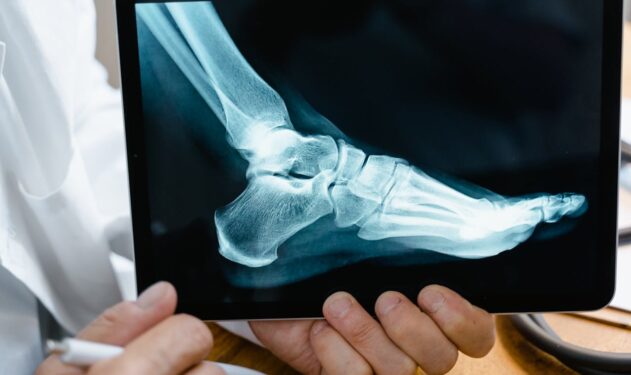A BMJ Quality & Safety journal study published in 2023 suggests that just under 800,000 patients in the U.S. are either left with permanent disabilities or die because they receive a misdiagnosis. However, researchers warn that, given how there’s only a 0.1% chance of a patient suffering harm, the risk of being misdiagnosed shouldn’t weigh heavily on patients’ minds.
Fear of receiving an incorrect diagnosis or a recommendation to pursue a more aggressive treatment option often motivates patients to get assessed by a different doctor. That being said, if you find statistics such as the initial one above distressing and you have personally received a diagnosis or treatment plan that’s left you feeling uneasy, you wonder, “When should you get a second opinion from a different doctor?” Keep reading where we’ll address that question.
What a Second Opinion Is
Put quite simply, any instance in which a patient has previously received a diagnosis from one physician for a certain presenting concern then goes to see a different doctor for their professional opinion for that same condition.
When Should You Have Another Doctor Evaluate You?
There are various reasons why you should have a second doctor evaluate you, which include:
- You and your doctor don’t seem to see eye-to-eye with each other: Having a physician treating you who seems to already have their mind made up, and who doesn’t want to hear what you have to say or order imaging or blood tests to confirm their diagnosis is just one example of a situation where you may want to see a different doctor who will listen and do what it takes to verify their suspected diagnosis.
- You’ve been diagnosed with a rare or serious disease: If a doctor has informed you that you have cancer, an often-debilitating disease like multiple sclerosis, or even a gastrointestinal condition like Crohn’s Disease, seeking a second opinion can be helpful to confirm that diagnosis.
- Your treating physician isn’t clear as to what is afflicting you: While many doctors are able to take the symptoms you describe having and use them to rule in or out certain diagnoses, they might not feel able to assign you a diagnosis on first impression. This often occurs when patients have such a rare condition that they’re not as informed about it to assign you a correct diagnosis.
- There are other treatment options to choose from: Even if your initial doctor diagnosed you correctly, you may feel conflicted when weighing all the different treatments available to you. In situations like those, it can be helpful to have another doctor to weigh in on the best treatment options and the pros and cons associated with each to ensure you’re informed about what your choices are and the benefits and risks of pursuing one over another.
- You haven’t responded well to the initial treatment option recommended and pursued: If you went with the medical procedure or treatment your physician suggested for you to and it either didn’t improve your condition or, even worse, caused a deterioration of it.
Which Diseases Are Most Commonly Misdiagnosed?
Some conditions are misdiagnosed more often than others. The authors of the BMJ study referenced above contend that five medical conditions are particularly concerning to them for this exact reason, which are:
- Strokes
- Sepsis
- Pneumonia
- Venous thromboembolism (blood clots in a vein)
- Lung cancer
The authors’ research highlighted how almost 40% of the most serious patient outcomes affect patients who ultimately are diagnosed with the above-referenced medical conditions.
As for another condition that often goes misdiagnosed, it’s heart attacks — especially in women. One study published in 2018 in Proceedings of the National Academy of Sciences captured how this potentially fatal condition is most accurately diagnosed by female physicians who understand how women’s heart attack symptoms differ from the ones men experience.
When Should You Second-Guess Your Doctor’s Prescribed Treatment Plan?
Not all situations call for you to get a second opinion about what a physician tells you is the best course of action to treat your medical condition. However, if your own personal research or even what the doctor tells you is that there are other treatment options to consider, you should certainly proceed with caution.
Take, for example, a medical ailment whereby there are surgical and non-surgical options for treating it. You should be leery of accepting a recommendation to opt for the more risk-prone, invasive treatment option compared to the more conservative, medicinal choice.
The key with second opinions is to understand that they don’t necessarily replace the first doctor’s recommendation of a treatment plan but serve as an opportunity to confirm a diagnosis or course of treatment for it.
How To Proceed If Your Second Opinion Reveals a Differential Diagnosis
If the second doctor you see diagnoses you with a different condition or recommends a different course of treatment, that’s when you may consider getting a third physician’s opinion or, at the very least, seeing the original doctor who diagnosed you differently once again and bringing the differential diagnosis and treatment plan from the second provider to their attention.
Similarly trained doctors with the same diagnostic resources at their disposal should order the same tests and reach the same conclusions. When they don’t, this can give way to a misdiagnosis, which can affect the treatment they receive and their long-term prognosis.
Attorneys like ours at Prochaska, Howell & Prochaska LLC have extensive experience taking on Wichita medical providers who didn’t uphold the duty of care they owed their patients in arriving at a correct diagnosis. We’re here to support you if your physician fails to do the same. Speaking with one of our medical malpractice lawyers about the rights Kansas law affords you is free.








